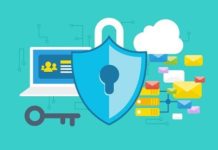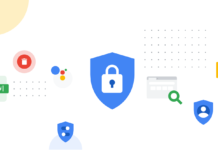An I.T department is one of the most important parts of any business. This is because early every company uses technology in some way, whether it is digital marketing, using social media or using a piece of software or tool. Without technology, many companies would simply fail or be much less productive.
However, all of this use of technology has unfortunately opened us up to a wide range of different hacks and data breaches. Data breaches are becoming much more common and companies have lost billions of dollars from these data breaches and other attacks. In order to limit these, it is important that security is a huge concern at your company. One of the best ways to limit the potential for data breaches is to utilize access control.
This article is going to look at what exactly access control is, and then helping you understand compliance for access control.
What is Access Control?
Access control is when you control or limit who has access to the different private or sensitive information you have. See, most data breaches are actually caused by human error. So the fewer people that have access to private information, the better. If their job duties don’t require access, they shouldn’t have it.
There is both physical and logical access control. Physical access control will physically keep people out of a certain location, and logical will keep them from having access to certain networks, files or information. Access control systems will require people to have certain passwords or codes to gain access.
While this might all seem complicated to set up, thankfully, there are tools and services that can help you out. Some even make it so you can manage and audit access rights incredibly quickly and easily.
There are also different models for access control. Sometimes the owners of the information can choose who has access and sometimes companies choose based on seniority or role. Either way, it is important to control access at your company, especially if you deal with sensitive information. But how do you start? What sorts of access control do you need to have and what do you need to comply with?
Compliance for Access Control

Not only is access control a good idea for companies, in many industries, it is actually a requirement. Because of the increase of data breaches and other security concerns, government agencies and regulators are establishing a number of different security requirements. If you do not comply, you risk your company being fined or being unable to operate. But how do you get started and know what you need to do to remain compliant?
Well, the first thing to do is to find out which type of compliance are you responsible for? Is it the PCI, GDPR, UL294, HIPAA or another one altogether? Once you are aware of what you need to comply to, it will be easier to make it a reality. If you are unsure about which you regulations you need to comply to, doing a search online or speaking to an expert in the field should be able to help.
Next, you need to find the right tools, system or software to help handle your security. These systems can provide you a user database and tools to audit, manage and enforce your policies such as dealing with your logs, dealing with your files, etc. You will simply add each employee to the system, along with their level of access. Don’t worry, you can easily change the level of access or revoke credential inside most of these systems. Having these types of systems in place will not only ensure you abide by all regulations but can also help you prove it during potential audits that can take place.
Of course, be sure to review your access control and overall security policies frequently. Compliance is always changing and there are always innovations in the data security space and the risk factors are always evolving and changing a well. As a result, you need to have policies in place that are dynamic and capable of changing at the drop of a hat
In conclusion, hopefully, this blog post has helped you get started with access control, and learn how to comply with what you need. The topic can be confusing, and there is a lot to know and think about, but data security is one of the most important things, so be sure to take the time and learn. It is safe to say that if you collect customer data or information in some way, you likely have some regulations to be compliant of.








